This post may contain affiliate links and Corporette® may earn commissions for purchases made through links in this post. As an Amazon Associate, I earn from qualifying purchases.

Readers had a great discussion in the comments the other day about how long your resume should be, and we thought it deserved its own post.
So, do tell: How long is your resume? Do you try to follow the age-old “keep it to one page” rule (now typically seen as out of date), or have you been in your career long enough that you've decided it's time to go to two, or even three? Or are you in a field (or a country) in which a CV is most common?
Readers Thoughts On How Long Resumes Should Be
Here are some examples that readers shared in the thread:
- 1 page (5 years of experience)
- 1 page (using a sidebar resume template to maximize space — we'd love to hear in general what you guys think about sidebars and resume templates!)
- 2 pages (12 years of experience)
- 2 pages (15 years of experience as a lawyer)
- 2 pages (30+ years of work)
- 2 pages (2 careers; previous is relevant to current)
{related: are there differences between LinkedIn and your resume?}
Expert Guidelines On Resume Length
For expert advice, check out these articles from Monster, The Muse, and Ask a Manager (2012, but still relevant); the advice slightly differs, so it's important to know what's typical for candidates in your field. But here are some brief, general guidelines:
1-page resume: (1) New grads/early career; up to 5–10 years of experience; (2) career changers; (3) people with 1 or 2 employers
2-page resume: (1) people at mid-career and beyond; (2) people with several relevant employers; (3) people who'd have to delete important accomplishments, etc., to stay at one page
3-page resume: (1) People in academia, government, or certain technical fields (YMMV); (2) senior-level managers and execs; (3) people (e.g., those in category 1) who need to list many accomplishments, such as speaking engagements, publications, and patents
{related: new resume rules you might not know!}
How long is your resume, how long have you been working, and what is your field? What are your thoughts on how long should your resume be? If you've gotten rid of certain elements to follow a one-page limit, how did you consolidate? (At what point did you drop school accomplishments or condense job experiences?) If you're involved in hiring at your company, what are your thoughts on the length of candidates' resumes?
Psst: some of our latest posts on job hunting!
{related: Greek affiliations and your resume}
Some must-read business books for women — update coming soon!
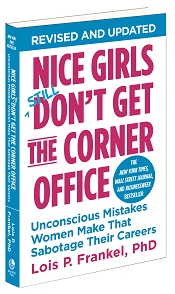
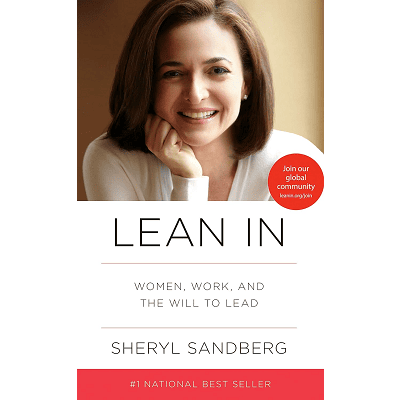
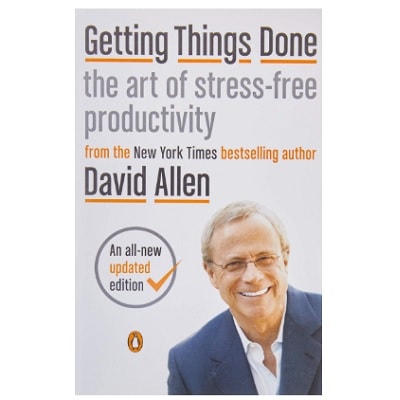
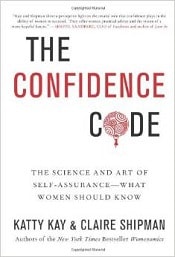
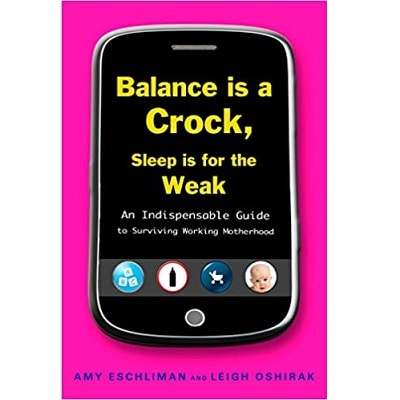

Stock photo via Deposit Photos / fizkes.

Anna
I page, with a side bar for tech skills. I know that skills sections are a bit controversial, but they seem like a must for IT or CS positions because there is a laundry list of languages/softwares/etc that people are looking for, including possibly recruiters or other non technical folks who will not recognize common synonyms.
I have 6-7 positions to post about due to a few short-term contract positions, and it would not be great to lump them together. I can still get it to fit to 1 page, so I would recommend that.
On the other end, I was reviewing resumes for a role the other day, and tbh I skimmed most resumes and read a few bullets, but I would not have made it to a second page. No one has sent a 2 page resume so far
Cat
10+ years out of law school and I still keep mine to a page. I don’t see longer than a page for applicants, either. You’re trying to be succinct and highlight the experience that will be relevant to the opportunity, not enumerate every project you’ve worked on. Some people change to a tiny font to fit on one page and that… misses the point.
Education is at the bottom.
Anon
Yes – me too. I’m 8 years post-MBA, with 4 years pre-MBA work experience, and I also try to aim for a page. As I add more experience, I just minimize some of my earlier (and progressively less-relevant) experience. I’d be curious if others disagree with this….
AnonMom
More than 20 years in the working world with three different career focus areas and mine still fits neatly on one page. I am not in academia or any of the other known exceptions.
Whenever I need to add something, the earlier and less relevant jobs go from something like six detailed bullet points, to three broad achievements, to one summary line.
anon
I’m 15+ years now out of law school and I am at two pages. There’s no way I’d be able to list relevant accomplishments for my various jobs on one page. I use the sidebar template and I like how it looks as well as its functionality.
bellatrix
Agreed. I’ve been out of school for 22 years, working FT for most of that and freelancing for the rest, and I can’t see myself ever needing two pages. A resume is a marketing document, not a complete file. I’m a writer/editor, so my work samples go on my portfolio site – that’s what employers really want to see in my field, IMO. Education is in a sidebar (I went to a fancy-pants uni so I like to keep it up top), along with skills/software (WordPress, etc) and professional affiliations.
Confession: Whenever I see resumes of 2+ pages, the breaks seem to come at awkward points, and I’ve got just enough design experience that it bugs me. So I’m willing to sacrifice a bit of content for the sake of design. What have I become?
Anon
20+ years out, GC, and same. Editing is a key skill. I also will look askance at anyone applying who has more than a page long resume. Says to me you don’t know what’s relevant or how to edit.
Anonymous
Two pages. I’d have to delete publications or jobs that are relevant in my field to stay on one.
Anon
20 years in my field as of 2020, absolutely stick to one page.
My job requires being precise and concise in writing. A long-winded resume would be self-sabotage.
Cornellian
100% If I’m hiring you to be a transactional lawyer, and you can’t be concise with your resume…
AnonMom
+1
Anon
Page one is current career; page two is relevant previous career, speaking engagements, and publications.
Anonymous
New hiring manager and resumes >2 pages really irk me. We are in a technical field, so I don’t mind two pages (and I use two, although the second page is only partially filled), but more than two? Come on. I got a four pager and a five pager the other day.
Jeffiner
In 2019 my company offered mock interviews and resume critiques. I have 15+ years of experience (all with this same company), and was told at this stage in my career my resume should absolutely be 2 pages. They also want competency based resumes, starting with a “summary of qualifications” and listing specific, quantifiable accomplishments.
I was very glad for the opportunity to get feedback in a no pressure situation, but it made me feel that resumes are like fashion and follow trends, and it put a very bad taste in my mouth. While communication is an important part of my job, or jobs I would apply for, a trendy resume is a terrible way to select candidates.
Anon
I often feel like resume reviews just invent these styles and “rules,” in order to keep their employment. If eve one acknowledges that a certain format is best for all time and you just learned it in college, they would get a lot less speaking engagements.
Anon
Specific, quantifiable accomplishments is absolutely not a “trend”
Anon
Can any lawyers comment? I was told that as a senior associate who has a few different firms/roles under her belt I should have at least 2 pages on my resume. To condense it to 1 page I had to remove some less-but-still-relevant info, like my pre-law school job as a legal assistant in a practice area related to mine. I think most employers would see it as a plus.
Cat
Who told you that? Based on the responses above it seems like middling advice…
Anon
Also curious. I’m spending my first three years in three different clerkships. Lots of people achieving my career goals continue switching jobs every 1–3 years for a while, which adds up to a lot of relevant resume lines pretty fast. Does rapid job-switching mean relatively early-career lawyers should break onto a second page? Or just delete earlier jobs even when relevant?
OP
A legal recruiter!
Anon
Hiring lawyer here; get it to one page. I don’t care what you did before law school unless you’re a first year (then it just tells me you’ve had a job and might adapt to work). People overly focused on their pre-law careers are often difficult to work with as lawyers.
Anonymous
Does your opinion change for patent attorneys with prior experience in the relevant technologies?
Anon
Also wondering if this changes if all of your law experience is at a firm and you are applying to go in house (or in a corporate non-law role)? Would pre-law school job be relevant to show professional work experience outside of a firm?
Anon
So no, my advice doesn’t change – I’m in-house now and used to hire at my firm. For the patent skill question, put that in a cover letter (I’m also very in favor of a custom cover letter), or figure out a way to format where you include it if relevant (you don’t have to stick to job, list of tasks). In-house it’s even more important to be more on-trend with your resume and tov think of it as a marketing document because I’m likely sharing it with business side people plus the law department. The business side is much more used to a slick, one-page, well formatted document.
Anon
Is it okay to put information in the cover letter that isn’t documented in the resume? I usually think of the resume as “backing up” the letter.
Anon
100% okay in my view and I think that’s what a cover letter is for – it rounds out what you bring to the table, it’s not a fact-check document. If you’re concerned, put more detail on your LinkedIn profile.
Anon
Thank you so much for the response! I’m applying now and do not want to get trashed just for having a bad format.
Anon
Of course, good luck anon!
Anonymous
I’m only 2 years and 1 job out of law school, so my current resume is one page. However, I foresee that in another job or two it will have to be 2 pages because of a previous relevant career. I need to be able to include my law career with specific accomplishments, my engineering career (2 jobs relevant to my patent work), and education including undergraduate.
Fedgirl
Can’t speak for all gov agencies. Fed, 20 years in, I keep my resume to 2 pages. I think that 2 pages is plenty. Being concise in your resume is a challenge, just like it can be in a memo that you might need to write. Embrace the challenge.
Anonymous
For federal service, they are playing “buzzword bingo” on resumes. And there are no take-backs. You either qualify based on the “bot”, or you don’t. So as a 12-year, high-performing fed finance person my resume is 3 pages. I think it’s silly to have 3 pages, but I’m also not going to limit my pre-interview qualifications base upon a computer. Sharing for all that we interested in fed jobs.
Librarian of the day
I’m an academic librarian in the US and my academic cv is about 15 pages long for my 16 year career. I made the promotion from assistant professor to associate professor with that length. I’m also in upper management and my short version is 4 pages. I also hire librarians and I’d expect 3+ pages for most roles (and shorter for entry level). Academic CVs are wildly long documents.
creativeresume
Write a one-page resume if you’ve got less than 4 years of experience. Write a 2-page resume if you’ve got 5+ years of experience. Longer resumes are fine for lots of achievements—like if you’re an artist or a project manager.
ArtisanResume
Resume formatting is really important. If your resume format has lots of spaces and the font sizes are unnecessarily large, then your resume might span to be three pages instead of one or two. Try playing around with the format, spacing, and font size. In general though, if you have 5+ years of experience, then your resume should be detailed enough to provide a potential employer the depth of your experience–so two pages is OK.